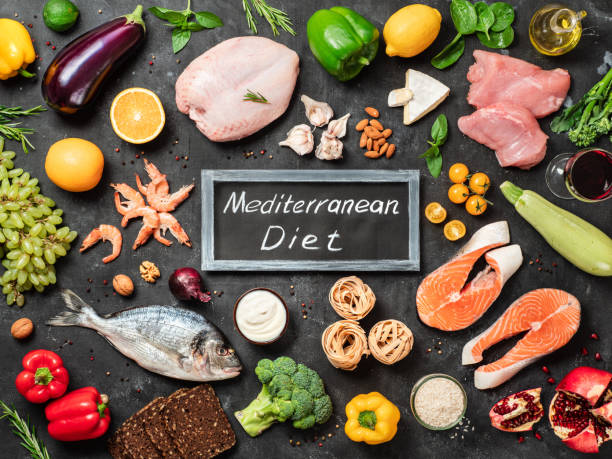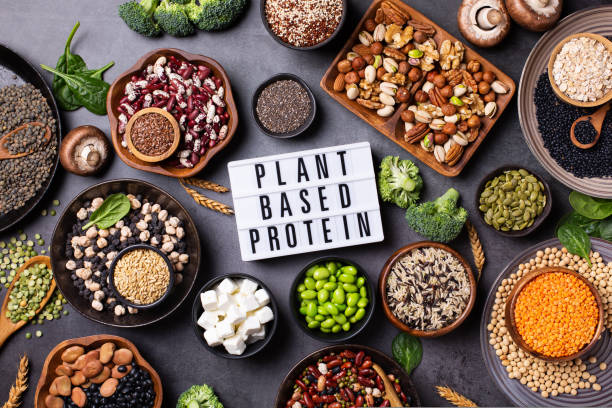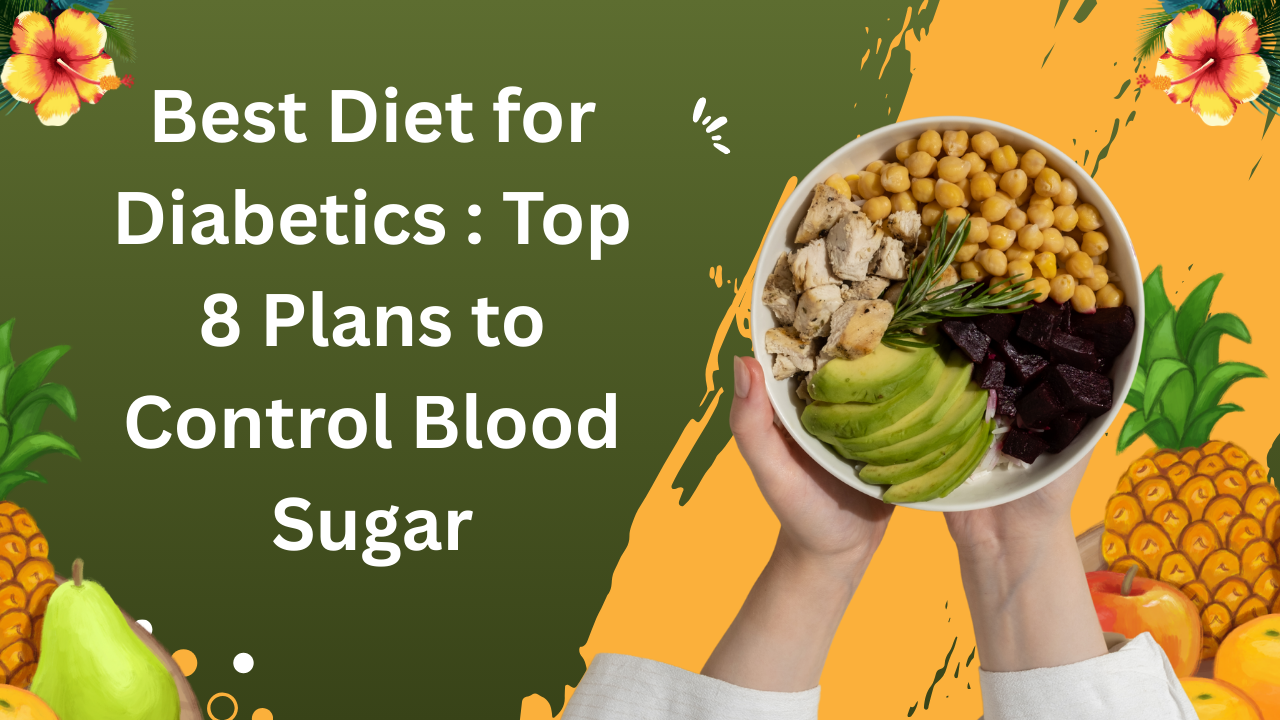Staying healthy has become more important than ever, especially for women in today’s fast-moving world. With so many roles to play—managing careers, family, and social lives—women often forget to care for their own health. In the rush of daily life, nutrition is usually the first thing to be neglected, even though it plays a vital role in overall well-being.
A healthy diet is more than just a tool for weight control. It helps support energy levels, boost the immune system, and improve mental clarity. For women, proper nutrition is especially important for maintaining hormonal balance, supporting reproductive health, and reducing the risk of chronic illnesses.
By focusing on balanced meals that include a variety of nutrients, women can improve their strength, focus, and mood. Eating well every day helps build a strong foundation for long-term wellness and vitality. Taking the time to choose the right foods can make a big difference in living a healthier and more active life.
Why Is a Healthy Diet Important in Life ?
Nutrition plays a pivotal role in the quality of our lives. The food we consume impacts everything from our energy levels to the function of our organs and immune system. For women, this importance is magnified due to unique physiological processes such as menstruation, pregnancy, lactation, and menopause.
Supports Hormonal Balance: A healthy diet plan for women plays a vital role in regulating hormones that influence mood, energy levels, metabolism, and reproductive health. Consuming a variety of nutrient-rich foods, including healthy fats, proteins, and essential vitamins, can help stabilize hormone production. This balance may ease the discomfort of PMS, reduce the severity of menopausal symptoms, and support overall endocrine health.
Strengthens the Immune System: Following a healthy diet plan for women helps build a resilient immune system. Essential nutrients such as Vitamin C, Vitamin D, zinc, and antioxidants from fruits, vegetables, and whole foods work together to defend the body against harmful pathogens. These nutrients reduce the likelihood of infections and lower the risk of developing long-term illnesses.
Enhances Bone Density and Health: Women face an increased risk of osteoporosis, especially after menopause when estrogen levels decline. A healthy diet plan for women that includes calcium, Vitamin D, magnesium, and high-quality protein supports the maintenance of strong bones and helps prevent fractures and bone-related conditions later in life.

Promotes Mental and Emotional Well-being: Mental clarity and emotional stability are closely tied to nutrition. A healthy diet plan for women that includes omega-3 fatty acids, B vitamins, and antioxidants helps support brain function, reduce feelings of anxiety and depression, and protect against age-related cognitive decline.
Manages a Healthy Body Weight: Maintaining a stable and healthy weight is easier with a well-balanced diet. A healthy diet plan for women promotes metabolic health, reduces unhealthy cravings, and minimizes the risk of weight-related conditions such as type 2 diabetes, cardiovascular disease, and hormonal imbalances.
Improves Daily Energy and Vitality: Women who follow a healthy diet plan for women often experience higher energy levels and improved stamina. Nutrient-dense meals fuel the body more efficiently, allowing for better performance in daily tasks and fostering an overall sense of vitality and well-being.
Key Nutritional Needs for Women
Women have specific dietary needs that differ based on age, lifestyle, and health status. These include:
Iron: To prevent anemia, especially during menstruation.
Calcium and Vitamin D: For bone health.
Folate: Especially important during pregnancy for fetal development.
Fiber: For digestive health and to reduce heart disease risk.
Protein: To maintain muscle mass and repair tissues.
Healthy Fats: For brain and heart health.
Hydration: To maintain bodily functions and skin health.
Top 8 Healthy Diet Plans for Women
Here are the eight best diet plans that cater specifically to women’s health needs. Each is designed to offer balanced nutrition while supporting overall well-being.
Mediterranean Diet

The Mediterranean diet is widely recognized as one of the best eating patterns for overall health and longevity. It focuses on whole, natural foods that are rich in nutrients and easy to incorporate into daily meals. This way of eating is both balanced and sustainable, making it ideal for long-term wellness.
A key part of the Mediterranean diet includes fruits, vegetables, whole grains, legumes, nuts, and seeds. It also emphasizes healthy fats, such as olive oil, and includes moderate amounts of fish and dairy. These foods provide essential vitamins and minerals that support heart health, brain function, and energy levels.
As a healthy diet plan for women, the Mediterranean diet is especially beneficial. It supports hormonal balance, bone strength, and weight control. Its rich variety of foods can also help reduce the risk of chronic conditions while promoting better mood and mental clarity in everyday life.
Why It’s Great for Women:
Rich in antioxidants from fruits and vegetables.
Healthy fats from olive oil, nuts, and fish help support heart and brain health.
Whole grains provide fiber for digestion.
Moderate dairy supports bone health.
Core Components:
Fruits and vegetables (5+ servings daily)
Whole grains like quinoa, brown rice, and oats
Healthy fats: olive oil, nuts, and seeds
Lean protein: fish (especially fatty fish like salmon), poultry, legumes
Limited red meat and processed foods
Moderate wine consumption (optional)
Benefits for Women:
Reduces risk of heart disease, common in postmenopausal women.
Controls blood sugar and weight.
Supports mental health and reduces cognitive decline risk.
DASH Diet (Dietary Approaches to Stop Hypertension)
The DASH diet, which stands for Dietary Approaches to Stop Hypertension, was originally developed to help lower high blood pressure. Over time, it has become known as a powerful eating plan for overall heart health and wellness. It focuses on reducing sodium intake and increasing nutrients that support healthy blood pressure.
This diet emphasizes fruits, vegetables, whole grains, lean proteins, and low-fat dairy while limiting processed foods, added sugars, and unhealthy fats. These food choices help lower cholesterol, manage weight, and keep blood pressure in check. It’s a balanced and flexible approach to eating that suits daily life.
As a healthy diet plan for women, the DASH diet is especially helpful for those managing high blood pressure or aiming to prevent heart-related issues. It also supports energy levels, hormonal health, and reduces the risk of stroke, making it a smart choice for long-term wellness.
Why It’s Great for Women:
Low in sodium and saturated fats.
High in potassium, calcium, and magnesium to lower blood pressure.
Emphasizes fruits, vegetables, and whole grains.
Core Components:
Fruits and vegetables (8–10 servings per day)
Whole grains like brown rice, oats, and whole wheat
Low-fat or fat-free dairy products
Lean protein: fish, poultry, nuts, and beans
Limits sweets, sugary beverages, and red meats
Benefits For Women:
Helps manage hypertension and reduce stroke risk.
Supports kidney health.
Weight-friendly and suitable for diabetes management.
Plant-Based Diet

A plant-based diet focuses on eating mostly whole, unprocessed plant foods such as fruits, vegetables, legumes, whole grains, nuts, and seeds. It either limits or completely avoids animal products like meat, dairy, and eggs. This way of eating is not only nutritious but also environmentally friendly and heart-healthy.
By prioritizing plant-based foods, this diet is rich in fiber, vitamins, minerals, and antioxidants. These nutrients support digestion, improve skin health, and help reduce inflammation in the body. Plant-based diets are also linked to a lower risk of chronic diseases, including diabetes, heart disease, and certain cancers.
As a healthy diet plan for women, a plant-based approach offers many benefits. It supports weight management, hormonal balance, and increased energy. It can also help reduce the risk of osteoporosis and improve mental well-being, making it a strong choice for long-term health and vitality.
Why It’s Great for Women:
High in fiber, vitamins, and antioxidants.
Low in saturated fat and cholesterol.
Helps in maintaining a healthy weight and reducing inflammation.
Core Components:
Vegetables, fruits, legumes, nuts, seeds, and whole grains.
Minimal or no animal products.
Focus on natural, unprocessed foods.
Benefits for Women:
Reduces risk of heart disease, certain cancers, and type 2 diabetes.
Promotes digestive health.
Ethical and environmentally friendly choice.
Anti-Inflammatory Diet
Inflammation is a root cause of many chronic health issues, including heart disease, arthritis, and diabetes. While some inflammation is a natural part of the body’s defense system, long-term or excessive inflammation can be harmful. One major factor that contributes to this is a poor or unbalanced diet.
An anti-inflammatory diet helps lower inflammation by including foods rich in antioxidants, healthy fats, and essential nutrients. These typically include fruits, vegetables, whole grains, fatty fish, nuts, and seeds. At the same time, it limits processed foods, sugary snacks, and trans fats that can worsen inflammation.
As a healthy diet plan for women, this approach can be especially helpful in reducing joint pain, supporting heart health, and boosting immunity. It also plays a role in balancing hormones and maintaining energy levels. Overall, an anti-inflammatory diet supports long-term wellness and helps protect the body from disease.
Why It’s Great for Women:
Helps reduce symptoms of arthritis, PMS, and autoimmune diseases.
Supports skin health and energy levels.

Core Components:
Colorful fruits and vegetables rich in antioxidants
Whole grains and legumes
Healthy fats like olive oil and omega-3s (from fish and flaxseeds)
Spices like turmeric and ginger
Avoid processed foods, refined sugars, and trans fats
Benefits for Women:
Alleviates chronic pain and swelling.
Supports cardiovascular and brain health.
Improves mood and cognitive function.
Low-Carb or Ketogenic Diet
A low-carb or keto diet is a popular eating method that cuts down on carbohydrates while increasing fats and proteins. This kind of diet can help the body burn fat more efficiently for energy, which may support weight loss and improve energy levels.
In a healthy diet plan for women, limiting carbs and focusing on whole foods like vegetables, lean meats, eggs, and healthy fats can help balance blood sugar levels. This can also reduce cravings and support hormone balance, which is important for overall wellness.
Many women find that following a low-carb or keto diet helps them feel full longer and supports better digestion. However, it’s important to choose a plan that fits your personal needs and lifestyle. A healthy diet plan for women should always focus on nutrition, balance, and long-term sustainability for the best results.
Why It’s Great for Women:
Can promote weight loss and improve insulin sensitivity.
May improve hormonal balance in conditions like PCOS.
Helps control blood sugar levels.
Core Components:
Low intake of sugars and starches
Moderate protein from lean meats, fish, eggs
High fat from avocados, nuts, seeds, and oils
Benefits for Women:
Supports weight management.
May reduce cravings and improve metabolic health.
Important to balance with nutrient-dense foods to avoid deficiencies.

Balanced Flexitarian Diet
Flexitarianism is a flexible way of eating that mainly focuses on plant-based foods but still includes small amounts of meat or fish from time to time. It allows you to enjoy the benefits of a vegetarian lifestyle without giving up animal products completely.
This approach can be part of a healthy diet plan for women because it encourages more fruits, vegetables, whole grains, and legumes. These foods are rich in fiber, vitamins, and minerals, which help support heart health, digestion, and overall well-being.
Adding occasional meat or fish provides extra protein and important nutrients like iron and omega-3s. Flexitarianism offers balance, variety, and fewer restrictions, making it easier to follow in the long term. For many women, it’s a realistic and nourishing way to improve their eating habits while staying healthy and enjoying a wide range of foods.
Why It’s Great for Women:
Combines benefits of plant-based eating with flexibility.
Ensures nutrient adequacy including iron and B12.
Core Components:
Mostly plant-based meals: vegetables, fruits, legumes, nuts, seeds, and grains.
Limited meat, poultry, and seafood (1-2 times per week).
Dairy and eggs in moderation.
Benefits for Women:
Supports heart health and weight control.
Easier adherence due to flexibility.
Good source of fiber, antioxidants, and protein.
Whole30 Diet

Whole30 is a 30-day eating plan that removes processed foods, sugar, dairy, grains, and legumes to help reset your eating habits. The focus is on eating whole, natural foods like vegetables, fruits, meat, and seafood during this period.
As a healthy diet plan for women, Whole30 helps increase awareness of food choices and how different foods affect energy, mood, and digestion. By eliminating certain food groups, it becomes easier to notice sensitivities and improve overall health through mindful eating.
Although strict, Whole30 encourages better food relationships and cleaner eating. After 30 days, foods are slowly reintroduced to help understand what works best for your body. Many women find it helpful for breaking unhealthy habits, reducing cravings, and building a strong foundation for long-term nutrition and wellness. It’s a short-term challenge with lasting benefits for a healthier lifestyle.
Why It’s Great for Women:
Helps identify food sensitivities.
Promotes whole foods and reduces processed sugar and additives.
Encourages mindful eating and portion control.
Core Components:
Vegetables, fruits, lean meats, seafood, eggs, nuts, and seeds.
Eliminates sugar, alcohol, grains, legumes, dairy, and processed foods for 30 days.
Benefits for Women:
Can improve digestion, energy, and skin health.
Helps reduce cravings and unhealthy eating patterns.
A good reset before adopting a long-term healthy diet.
Traditional Asian Diet
Traditional Asian diets, like those in Japan or Korea, are known for being balanced and full of nutrients. They focus on natural foods such as rice, vegetables, seaweed, fish, and fermented items like kimchi or miso. These foods are usually low in processed ingredients and high in fiber, vitamins, and minerals.
This style of eating fits well into a healthy diet plan for women because it supports heart health, digestion, and weight control. Meals are typically served in small portions with a variety of foods, which helps prevent overeating and provides a wide range of nutrients in every meal.
Including more traditional Asian foods in your daily routine can lead to better eating habits and overall health. It’s a simple and natural way to stay energized, feel full longer, and support your body’s needs with clean, wholesome ingredients.
Why It’s Great for Women:
Emphasizes fresh vegetables, seafood, and fermented foods.
Lower in fat and sugar compared to Western diets.
High in antioxidants and probiotics.

Core Components:
Rice, noodles, and other whole grains.
Plenty of vegetables and seaweed.
Fish and seafood.
Fermented foods like kimchi, miso, and natto.
Minimal red meat and sweets.
Benefits for Women:
Promotes longevity and low rates of obesity.
Supports gut health.
Rich in vitamins, minerals, and omega-3s.
Tips for Creating Your Own Healthy Diet Plan

Enjoy a Balanced Plate: A healthy diet plan for women should include a mix of fruits, vegetables, whole grains, lean proteins, and good fats for overall wellness.
Watch Your Portions: Eating mindfully and using smaller plates can help manage portion sizes and prevent overeating.
Stay Well Hydrated: Drinking enough water during the day supports digestion, energy, and overall health.
Cut Back on Processed Foods: Try to limit sugary snacks, refined carbs, and unhealthy fats for better nutrition.
Plan Your Meals: Preparing meals in advance helps make healthier choices and avoid last-minute temptations.
Follow Your Body’s Signals: Eat when you’re truly hungry and stop when you feel full to support a balanced eating pattern.
Stay Active: Regular exercise, combined with a healthy diet plan for women, helps maintain a healthy weight and improves energy.
Conclusion
In conclusion, adopting healthy diet plans for women is essential for maintaining overall well-being, supporting hormonal balance, boosting immunity, and promoting long-term health. Each woman’s nutritional needs are unique, and the top 8 diet plans discussed—such as the Mediterranean, DASH, plant-based, and anti-inflammatory diets—offer a variety of options to suit different lifestyles and health goals. Whether you aim to improve heart health, manage weight, or enhance mental clarity, choosing a balanced, nutrient-rich diet is the foundation for success.
Remember, a healthy diet is not about strict restrictions but about nourishing your body with wholesome foods that fuel energy and vitality. By prioritizing a sustainable and enjoyable eating plan, you empower yourself to live a vibrant, healthy life. Embrace one of these healthy diet plans for women and take a confident step toward optimal health and wellness today. Your body and mind will thank you!
FAQs
Q.1 What makes a diet plan healthy specifically for women ?
A healthy diet plan for women focuses on key nutrients like iron, calcium, folate, and healthy fats that support hormonal balance, bone health, and energy needs unique to women’s bodies.
Q.2 How do healthy diet plans for women help with hormonal health ?
Balanced diets rich in whole foods, healthy fats, and antioxidants help regulate hormones, reducing issues like PMS, menopausal symptoms, and improving mood and energy.
Q.3 Can these diet plans support women during pregnancy or menopause ?
Yes, many healthy diet plans can be adjusted to meet the increased nutritional demands of pregnancy and to address the changing needs during menopause.
Q.4 Are these diet plans suitable for weight loss or maintenance ?
Absolutely! These plans emphasize nutrient-dense foods and portion control, which promote healthy, sustainable weight loss or maintenance without extreme restrictions.
Q.4 How important is meal variety in healthy diet plans for women ?
Meal variety ensures women get a wide range of vitamins, minerals, and antioxidants, supporting overall health and preventing nutrient deficiencies.


